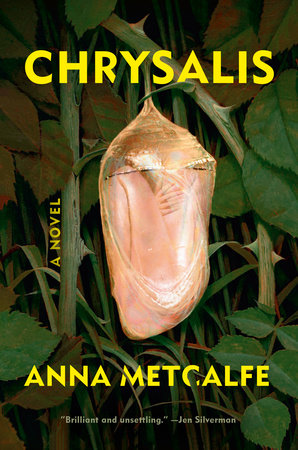
One morning, I made a stop at a café and ordered two fried egg sandwiches. I hadn’t eaten eggs in years. The sandwiches were awful. The ketchup was cheap—too thin, acidic—and the bread was like memory foam. It crept up around my teeth and, for the rest of the day, I found myself pulling bits of it out of my gums. The coffee arrived with an oily film, contaminated by the fat in the air, while the eggs themselves were slimy, but with a decent fried taste—blackened at the edges, which was how my mother used to make them for me. There were only three people in the café—me and two old guys reading newspapers, both facing away from the counter, lifting their heads to look out the front window from time to time. One of them kept peering at me around the side of his paper. He had sunspots on his cheeks. His skin was beige-gray, as though it had been washed with the wrong colors. When I put my money on the table and got up to leave, both men said goodbye to me. I found this touching. It was almost unbearable.
I wanted to reply, but didn’t. Instead, I nodded and tried to smile in a meaningful way.
Walking to the gym, I felt queasy, worse than if I hadn’t eaten anything. I paced up and down the car park. I took deep breaths and my stomach growled. When I got to reception, there was a new kid on the desk.
“Hello!” he said brightly. “Can I help you?”
I shook my head and my stomach made an obtrusive sound.
The kid coughed, as if to cover it up.
“Have a great session!” he said. “Don’t hesitate to ask if there’s anything you need!”
In the changing rooms, I caught my reflection and was disappointed to see how tired I looked. I’d been sleeping fine since the big job finished, but the older I got the longer my recovery time seemed to be. I’d rest for eight, nine, ten hours a night, and still I was exhausted, like all the tiredness I’d ever felt was racking up behind me.
“This is why you’re here,” I told my reflection, out loud. “To stop yourself from turning into a sack of shit.” I splashed some water on my face.
I dug around in the bottom of my gym bag for headphones. I found a motivational playlist. With the music too loud, I had a go on a treadmill. After fifteen minutes of angry running, I felt better. The music gave me a headache but I didn’t want to turn it off. It was one of those days where everything took more energy than I was willing to give it, where I felt the full weight of my body and the effort it took to keep dragging it around. I was considering what to do next—the sandbag weights or the arm bicycle—when I felt something, a little shiver, a new pulse in the air. I pulled the headphones from my ears and looked around. There was a faint rush of dizziness as I stepped off the machine. I steadied myself, gripping the arm of an unoccupied cross trainer, and then I saw her. There she was.
She was facing the mirrors, doing squats with dumb-bells in her hands. Because of the angle of the reflection, I could see all of her at once. It was thrilling to get the full scope of her, all three hundred and sixty degrees. I tried not to look too strangely, too intensely, in case someone noticed and told me to stop. I went over to the weight machines and sat on the leg press. From there, I could get a good view without drawing attention to myself. She looked amazing, kind of huge, a lot of muscle but fat as well. Sweat dripped from her hairline and pooled down her back. There were large wet patches under her arms and on the backs of her legs. On her feet she wore a pair of proper weightlifting pumps, the vintage ones like bowling shoes, with cream and navy stripes. Her little notebook was propped against the wall. I squinted to see the open page. It showed a strange, geometric shape—a letter, or a symbol perhaps, but not one that was part of any language I knew.
I had to remind myself to keep my legs moving on the machine. I tried to synchronize movement with breath so that it would become a natural reflex and I could give her my full attention, but I was still tired and, since coming off the treadmill, the uneasy feeling in my gut had returned. I put the headphones back on to cut the hum of the machines and the tinny radio playing through the speakers. I flicked through songs on my phone and found something with strings and spiritual noise. The eggs settled at last. I felt calmer, more alert.
It was good to look at her. Everything about her suggested power and strength. Her form was perfect. The angles were precise, rounded neatly at the corners by the muscle she’d built. Her hair was looped in a knot at the top of her head. Plant-like tendrils drifted down around her face. She did everything slowly, taking long deep breaths, working through the difficult transitions with grace and ease. A new song started playing.
There was a shift in the light. It came in mellow and warm. In the mirrors, her face glowed, like a romantic painting in an old museum. She put down the dumb-bells and moved to the mats. She did one-armed push-ups and burpees, but slowly—as if she’d changed the speed settings of her body, as if she might also fast-forward or rewind. My view of her was partially obscured by the lat pull-down and the red-faced man making use of it. I went over to the abduction machine. When I looked up again, she was holding a side plank. Her top leg was lifted, making pretty circles in the air. I checked the clock above the door and timed her. She stayed in position for almost nine minutes, then did the same on the other side. All the while, she appeared relaxed. She wasn’t forcing herself to do anything, it seemed, because whatever she did was exactly what was required. After a series of body weight exercises, she did some stretches and I noted that she’d maintained her flexibility in spite of the muscle she’d gained. She made graceful lines with her arms. Her eyes were wet and glistening. I reached for my phone. I held it down by my leg, like I was just checking something, reading a message, skipping a track. I opened the camera, lined up the shot, flicked to video, zoomed in. The light changed to her advantage. The long shadow of her body rose up the wall. My hand slipped. I took an eight-second-long recording of my knee. After that, I lost my nerve.
When she’d finished her stretching, she sat cross-legged on a yoga mat with the notebook laid out in front of her. She took a pencil from her bag and began to make rough marks across the page. I couldn’t see clearly but it didn’t look like she was writing anything. She was drawing, not a figure but another strange shape. I leaned forward, trying to get a better look. I put one foot on the floor for balance and leaned further. I was still looking over, completely absorbed in her, when she put down the notebook and got to her feet. She started walking toward me. She was looking right at me, no mistake. I straightened myself and tried to move my legs. I had a horrible cramp down my left side. I willed myself to move, but could not. As she closed in on me, my hands were sweating, my throat was dry. I expected her to say something but her lips were drawn firmly together. The cramp intensified. My arms began to shake. She waited a moment and then she gave an exaggerated curtsy, deep and low, like a concert ballerina. Her mouth curled up at one corner in a malicious smile, and then slowly, purposefully, she walked out of the room.
A few people stared, but I shrugged it off. I went through the rest of my workout—weights, then stretches—without having to exert the same effort as before. I didn’t think she was angry with me. Rather, I sensed she was amused. Flattered, even. Maybe she’d wanted me to look. It was the beginning of something between us, I thought. A point of connection, a shared moment. It was progress.
When I got home, there was admin to do. The big job had gone well and there were emails thanking me, offering more work. The money was considerable. If I’d said yes, I could have sent my mother on some enormous holiday, or given myself a few months off. But I didn’t, because I wanted to see her. I wanted to be part of her world. For the first time in my adult life, I wanted new routines.
__________________________________
From the book Chrysalis by Anna Metcalfe. Copyright © 2023 by Anna Metcalfe. Published by Random House, an imprint and division of Penguin Random House LLC. All rights reserved


